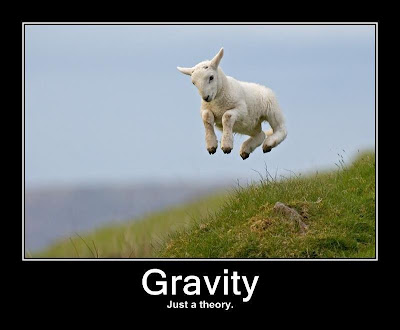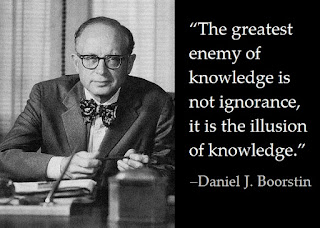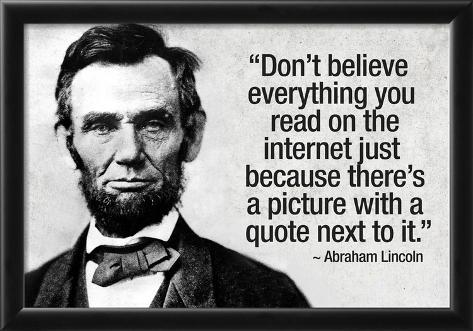Internet memes have radically changed the way we communicate online, especially on social media. It usually consists of a photo or cartoon with some text making a point. As the saying goes, a picture is worth a thousand words, and may therefore be much more effective at communicating a message than an entire well-reasoned, evidence-based essay (especially when Twitter limits posts to 140 characters).

Memes can be very witty in explaining something odd about the world in the form of a simple joke, and make people rethink their view of society. But, although they may often contain a kernel of truth, they’re usually inaccurate in detail, and sometimes extremely misleading or just plain wrong.
One type of meme that is very common is quotes from famous scientists, philosophers, politicians etc. with their picture next to it, which may be a profound statement about some aspect of the universe or human nature, or actually pseudo-profound bullshit from the type you might hear Deepak Chopra say and tells you nothing about reality.

Another common type is fictional quotes, which are attributed to people who cannot be traced as ever having said or written it, and most likely wouldn’t have supported it. A notorious example is that of Marcus Aurelius, who is falsely quoted as expressing doubt about the existence of gods, even though none of his surviving writings indicates such religious skepticism. This quote has been spread around the Internet in many different forms, especially by atheists, agnostics and humanists who probably like the fact that some famous ancient person appears to agree with them. In one of its worst iterations, it is even accompanied by a picture of Caracalla instead of Aurelius himself. This is just pseudohistory and should be challenged, even if you like the sentiment.

One more category of bad memes is made up of misattributed quotes. Someone did say it – although perhaps not literally – but that person was not that well-known, people misremember who said it (or don’t care), and instead attribute it to someone more famous. On Facebook, you’ll easily find hundreds of texts that were supposedly uttered by Albert Einstein, Stephen Hawking or Carl Sagan – figures that rationalists like to identify with. A quote frequently misattributed to Hawking is ‘The greatest enemy of knowledge is not ignorance, it is the illusion of knowledge’. Anyone who loves to combat pseudoscience is prone to agree with the statement, and if Hawking said, it must be great, so they hit the share or retweet button and wait for the likes to come in, without checking the source first.
The actual author was Daniel J. Boorstin. Who? Yeah, you probably never heard of him. But that’s no excuse to be gullible; you should always give credit where it is due. It’s very ironic when this quote, warning against the ‘illusion of knowledge’, is shared without checking the source, especially when skeptics do it – we, who should be giving the right example.

As a hint, usually Quote Investigator, WikiQuote and GoodReads are reliable websites to verify a quote’s authenticity, but there are many others and even these three might be wrong – something you’ll have to figure out for yourself. So when you’ve done that, what’s the next step? You could make an anti-meme like the Aurelius quote debunker above did, with red markings and capital letters, but that may come across as negative and perhaps even aggressive. A better way may be to reply to whoever posted a false meme by simply making a corrected version of that meme yourself, a counter-meme, and spread that around. If successful, the poster may issue a rectification or retraction, and perhaps even post your meme instead this time.

The best way to end this is arguably the best skeptical quote meme of all, deliberately misattributed to a person who died long before the Internet was even invented. This and similar versions are a great response to make people rethink if the meme is true. But even if a famous person actually said it, the contents of the text may still be wrong; we should be wary of arguments from misleading authorities as well.
